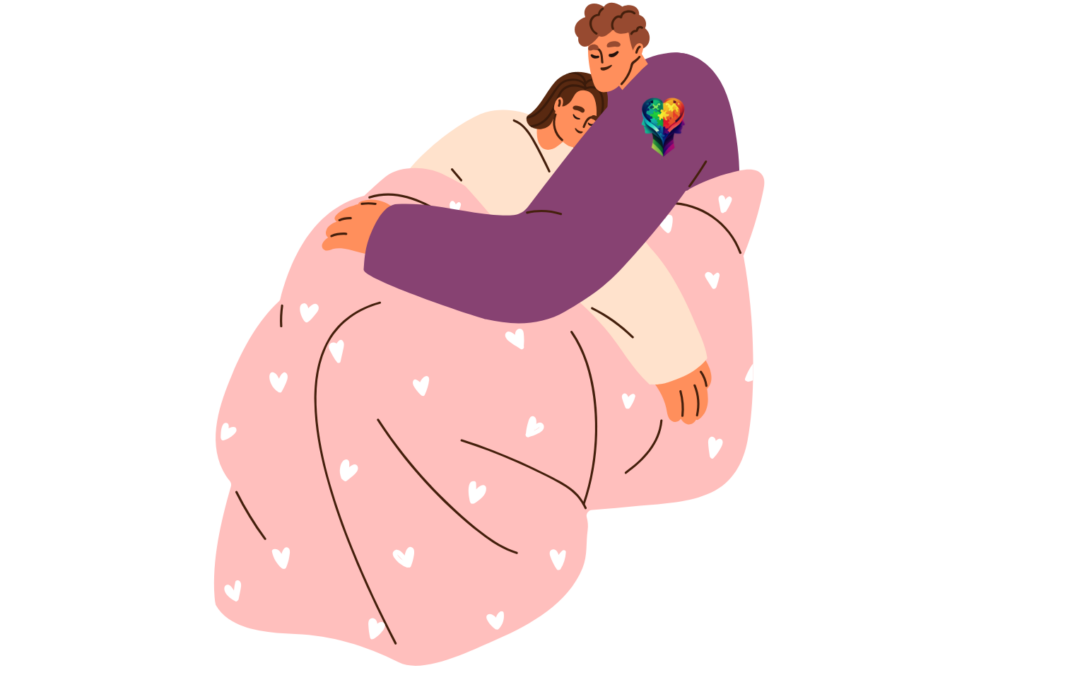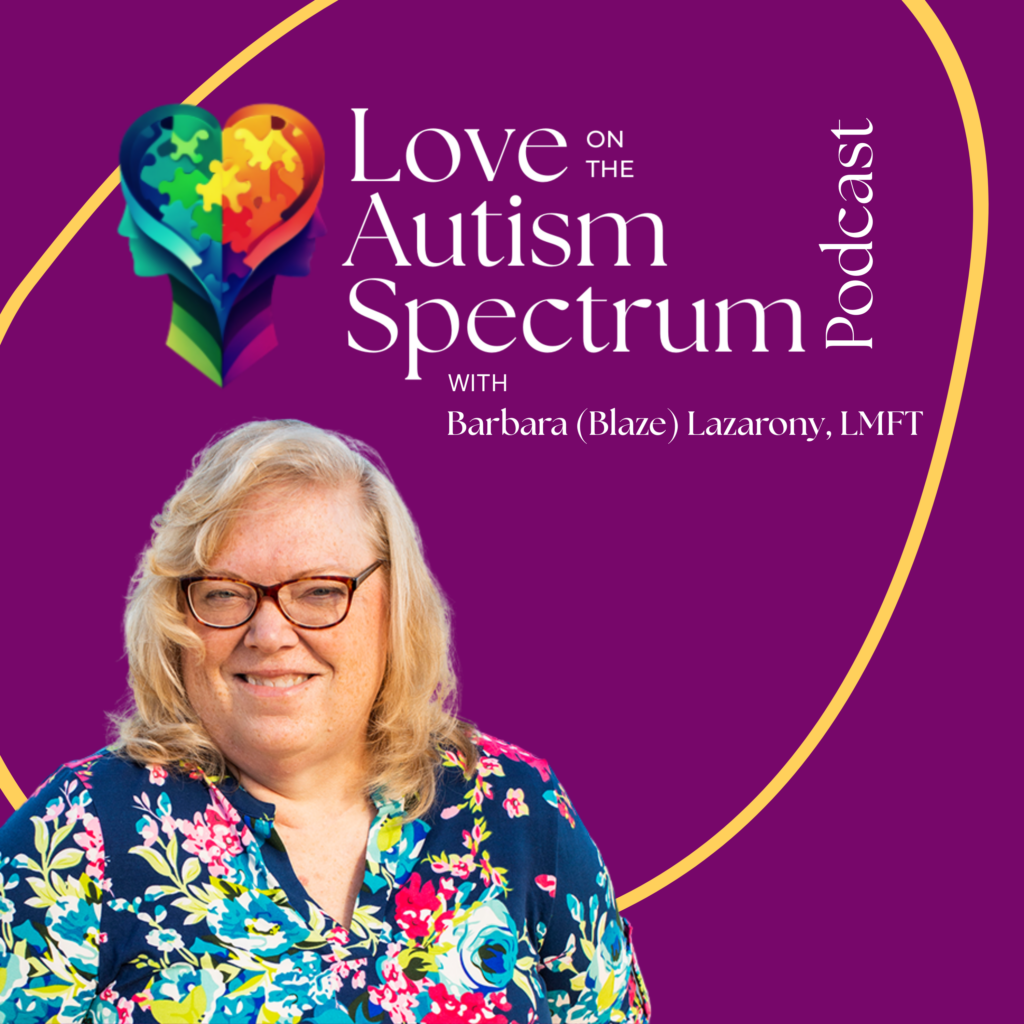Autism and sexuality are often overlooked in mainstream conversations, yet they are deeply important topics that deserve more attention. Sexuality is a fundamental part of human identity, and for autistic individuals, exploring and understanding their sexual needs and preferences can be a unique and complex journey. Addressing the intersection of these two critical aspects of life is essential for promoting the well-being, self-expression, and fulfillment of autistic individuals while also fostering greater acceptance and inclusion within society.
In this blog post, we will shed light on the unique challenges and experiences autistic individuals face in their sexual development, relationships, and education while also discussing the importance of mental health support and online safety for autistic males.
Key Takeaways
- Understanding autism and sexual development is essential to navigating the unique strengths and difficulties associated with autism spectrum disorder (ASD.)
- Autistic individuals require tailored sex education, support for gender dysphoria, and an understanding of diverse sexual orientations to promote healthy functioning.
- Building trust through open communication about diagnosis can help autistic individuals engage safely in relationships while managing mental health challenges.
Introduction
Autism Spectrum Disorder (ASD) is a neurodevelopmental condition that affects communication, social interaction, and behavior. Individuals with ASD often face unique challenges in their daily lives, including in the realm of sexuality and romantic relationships. As a result, it is essential to provide customized sex education and support to autistic youth, adolescents, and adults to promote their sexual health, safety, and well-being. Understanding the intersection of autism spectrum disorder and sexual health is crucial for fostering healthy romantic relationships and ensuring the overall well-being of individuals on the spectrum.
Understanding Autism and Sexual Development
ASD is a neurodevelopmental condition characterized by social communication difficulties and repetitive behaviors. While autism developmental disorders can present unique challenges in various aspects of life, the realm of sexuality is often overlooked, especially for adults with autism spectrum disorder.
It is crucial to educate autistic children about sexual consent and relationships as they mature to help them navigate these experiences safely and confidently.
Autistic adolescents, like their neurotypical peers, experience sexual feelings, develop romantic relationships, and engage in sexual activities. However, the way they navigate these experiences may differ from neurotypical (NT) or allistic sexual development due to their unique strengths and difficulties, including potential challenges related to hypersexual and paraphilic behavior.
Social and romantic functioning
Building and maintaining romantic relationships can be particularly challenging for autistic individuals. This is primarily because social and romantic functioning is heavily reliant on the ability to interpret and respond to subtle social cues, an area where many autistic individuals struggle. Research suggests that people with autism tend to emphasize shared interests more as the foundation of successful romantic relationships than their typically developing NT peers.
Understanding romantic or sexual attraction is crucial for autistic individuals, as it encompasses various forms of attraction and can be complex to navigate. This understanding is essential for teenagers on the autism spectrum who may struggle with expressing or identifying their own romantic or sexual attractions.
The role of parents in encouraging acceptance and understanding can significantly support the social and romantic functioning of their autistic child. They can help their child realize that it is not necessary to conform to the normative sexual development and expression of neurotypical people and emphasize the importance of respecting others’ choices and boundaries in the context of consent.
Sensory sensitivities and sexual experiences
Sensory sensitivities are a hallmark feature of autism, with around 90% of autistic individuals experiencing atypical sensory experiences. These sensitivities can significantly impact their sexual experiences both positively and negatively. For example, heightened sensitivity to touch may lead to increased pleasure during sexual activities, while sensitivity to certain smells or tastes may result in discomfort or aversion in intimate situations.
Sensory sensitivities can also influence sexual behaviors in autistic individuals, affecting how they express and engage in sexual activities.
A fulfilling sexual experience for both autistic individuals and their partners hinges on understanding and accommodating these sensory sensitivities. Open communication about sensory preferences and a willingness to make adjustments can help create a comfortable environment that respects the needs of both individuals.
Autism and Sexual Education
As a crucial component of personal development, sex education aids in understanding one’s body, relationships, and sexual health. For autistic individuals, customized sex education is particularly important due to their unique communication disparities and sensory sensitivities.
Adolescents and young adults with autism spectrum disorder face significant sexual health and education challenges. They have a higher prevalence of risky sexual behaviors and sexually transmitted infections, and standard sexual education programs often fail to address their unique needs.
Providing tailored sexual safety and education to individuals with ASD based on their sexual orientation can help prevent problematic sexual behavior and sexually transmitted infections and foster healthy sexual functioning.
Customizing Sex Education for Autistic Youth and Adults
Sex education is a critical aspect of promoting healthy relationships, sexual health, and overall well-being. However, traditional sex education programs often fail to meet the unique needs of autistic individuals. Customized sex education programs can help address the specific challenges faced by autistic youth and adults, such as difficulties with social communication, sensory processing, and executive functioning. These programs can be tailored to meet the individual needs of autistic learners, incorporating visual aids, social stories, and hands-on activities to promote understanding and engagement. By providing a more personalized approach, we can ensure that autistic individuals receive the knowledge and skills they need to navigate their sexual health confidently and safely.
Customizing sex education for autistic youth and even adults
Tailoring sex education to the specific needs of autistic youth and even adults involves taking into account their communication differences and sensory sensitivities. Autistic individuals may have difficulty understanding abstract concepts, so using concrete examples and tailoring the education to their needs is essential. Due to difficulty understanding social cues, explicit instruction on topics such as consent should also be provided. Autistic individuals often have limited sexual knowledge compared to their non-autistic peers, which makes customized education even more crucial.
For autistic people, a comfortable and sensory-friendly environment during sex education is a necessity. This might involve dimming the lights, reducing noise levels, or providing sensory breaks to ensure the learning experience is as accessible.
Addressing safety and consent
To protect autistic individuals from potential abuse and aid them in navigating healthy sexual relationships, teaching them about safety and consent is of utmost importance. Autistic individuals may struggle to comprehend social cues and boundaries, making them more vulnerable to exploitation and abuse.
By providing clear and straightforward explanations of consent, leveraging visual aids, and offering opportunities for practice and role-play, educators can help autistic individuals better understand the concept of consent and its importance in sexual relationships.
Autism, Gender Identity, and Sexual Orientation
Sexual orientation and gender identity are integral aspects of an individual’s identity, and autistic individuals are no exception. Research suggests a higher prevalence of gender dysphoria among autistic individuals compared to the general population. Furthermore, studies have demonstrated that autistic adults have a higher incidence of same-sex behaviors than the general population.
Autistic males are significantly more likely than non-autistic females to identify as bisexual compared to their non-autistic counterparts, emphasizing the diversity of sexual orientations among autistic individuals and the importance of inclusive healthcare and support.
An inclusive and comprehensive sexual education hinges on understanding the diverse sexual orientations and gender identities within the autistic community, taking into account gender diversity.
The link between autism and gender dysphoria
Gender dysphoria, previously known as gender identity disorder, refers to the distress experienced by individuals whose gender identity does not align with their biological sex. Studies have indicated a higher prevalence of gender dysphoria among autistic individuals. This correlation highlights the need for specialized support and understanding in addressing the unique challenges faced by autistic individuals experiencing gender and sexual identity issues.
As mental health professionals, we are aware of the potential association between autism and gender dysphoria, and we intend to ensure that the necessary assistance is provided to every client.
Understanding diverse sexual orientations in the autistic community
Autistic individuals may identify with a range of gender-diverse sexual orientations, such as:
- Heterosexual (attraction to the opposite gender)
- Homosexual (attraction to the same gender)
- Bisexual (attraction to more than one gender)
- Pansexual (attraction regardless of gender)
- Asexual (little to no sexual attraction)
- Other orientations (inclusive of diverse identities)
Research on sexual orientations includes individuals with spectrum disorders, highlighting the unique experiences and challenges faced by those within the spectrum of mental disorders.
Inclusive and comprehensive sexual education is essential for individuals with autism to understand their sexuality and gain sexual knowledge, enabling them to make informed decisions regarding their sexual health.
Acknowledging and embracing the diverse sexual orientations within the autistic community allows:
- Educators to better support autistic individuals on their path to self-discovery and personal fulfillment
- Mental health professionals like myself provide appropriate and inclusive care
- Family members to understand and accept their autistic loved ones
This support and acceptance can significantly contribute to the overall well-being and happiness of autistic individuals.
Sexual Health and Autism
Individuals with ASD are at a higher risk of experiencing sexual health issues, including sexually transmitted infections (STIs) and unwanted pregnancies. This is often due to a lack of access to comprehensive sex education, difficulties with social communication, and challenges with navigating romantic relationships.
Autistic individuals may also experience unique sexual health concerns, such as autistic traits such as hypersexual and paraphilic behavior, which require specialized support and guidance. Healthcare providers and educators must be aware of these challenges and provide tailored support to promote the sexual health and well-being of autistic individuals.
By addressing these specific needs, we can help autistic individuals make informed decisions about their sexual behavior and protect themselves from potential risks.
Navigating Adult Autism and Sexuality
Navigating sexual relationships can be challenging for autistic adults due to their unique strengths and difficulties. Effective communication and understanding of sensory sensitivities are crucial for fostering intimacy and maintaining healthy sexual relationships with autistic traits.
With regards to my identity, I see myself as a part of humanity, so therefore I am a person first-personally; my autism affects my visual and auditory perception, language processing, cognitive processing, learning difficulties, etc, but these are PART of me, not the totality of my BEING. –Paul Issacs
Communication strategies for intimacy in intimate relationships: The ability of autistic individuals to express their needs, desires, and boundaries hinges on open and honest communication. Informing potential partners of the need for direct communication can be advantageous, as can prioritizing clear communication during sexual activities to better understand each other’s comfort levels.
Autistic individuals may feel apprehensive about disclosing their diagnosis to a potential romantic partner, fearing that it may alter the other person’s perception of them. However, open communication about their diagnosis can help build trust and understanding in the relationship and provide a solid foundation for mutual support and growth.
Adjusting to sensory sensitivities in relationships
Sensory sensitivities can significantly influence the sexual experiences of autistic individuals and their partners. Accommodating these sensitivities in relationships can help create a comfortable environment that respects the intimacy needs of both individuals.
Partners should be aware of each other’s sensory sensitivities and be prepared to adjust accordingly. This could involve abstaining from activities or situations that could be overwhelming or providing a serene atmosphere with fewer sensory stimuli. For example, someone sensitive to light, sound, and crowds may not enjoy a loud concert or busy event as a form of connection. Their partner could suggest a quiet, more intimate date night at home or a low-key outing.
It’s also essential for partners to communicate openly about their needs and boundaries regarding physical touch. Certain types of touch may feel uncomfortable or overwhelming for individuals on the autism spectrum. Partners must understand and respect each other’s boundaries regarding physical affection when navigating autism and sexuality.
In addition, understanding each other’s communication styles is critical for a successful relationship. Individuals with autism may have difficulty expressing themselves verbally or understanding nonverbal cues from their partner. This can lead to misunderstandings and frustrations on both sides. Partners should be patient and find alternative ways of communicating.
When sensory overload occurs, patience, understanding, and support should be provided to ensure the well-being of both partners.
Mental Health and Support for Autistic Individuals in Relationship
While mental health is a vital aspect of well-being for all people, autistic individuals in relationships may encounter unique challenges in this area. Accessing specialized support services can assist autistic individuals in understanding their own needs and those of their partners, as well as supporting them in creating unique plans for their communication and emotional regulation needs.
What would happen if the autism gene was eliminated from the gene pool? You would have a bunch of people standing around in a cave, chatting and socializing and not getting anything done. –Dr. Temple Grandin
Mental health challenges in autistic relationships
Autistic individuals may face unique mental health challenges in relationships, such as:
- Difficulties with emotional regulation
- Depression
- Anxiety
- Stress
They may also experience difficulty in comprehending and managing social dynamics within relationships, leading to misunderstandings and conflict.
Addressing these mental health challenges requires specialized support tailored to the unique needs of autistic individuals. This may involve therapy, coaching, or even support groups where they can discuss their experiences, learn coping strategies, and receive guidance from professionals and peers.
Accessing specialized support services
Access to specialized mental health services can help autistic individuals navigate the complexities of relationships and maintain their well-being. These services may include:
- Therapy and coaching services, which are offered at Love on the Autism Spectrum
- Resources and insights
- PsychoeducationOnline support groups offer a safe space for autistic individuals to:
- Connect with others in similar situations
- Discuss their experiences
- Receive support from others
As a mental health professional who specializes in working with neurodiverse non-autistic individuals and their partners, we would love the opportunity to support you on your journey of navigating autism and sexuality.
Online Relationships and Safety for Autistic Individuals
For autistic individuals, online connections could be a valuable tool, offering a more relaxed and controlled environment for meeting people and social interactions. Considering the vulnerability of autistic individuals to exploitation and abuse, ensuring online safety is of paramount importance.
Benefits of online connections for autistic individuals
Online connections can provide a more relaxed and controlled environment for social interaction, allowing autistic individuals to engage with others in a way that is less daunting and better tailored to their individual needs. These connections can also provide opportunities for:
- Increased self-expression
- Improved communication
- Enhanced social skills
- Greater self-confidence
- An ability to connect via their special interests
Increased access to social and romantic opportunities through online connections may result in enhanced self-esteem, expanded social connections, and enhanced quality of life for autistic individuals. However, it is important to prioritize safety and be cautious of potential risks associated with online connections.
Staying safe online
Autistic individuals may be more susceptible to exploitation, online grooming, cyberbullying, and internet addiction due to their difficulty in perceiving social cues and communicating effectively. To ensure their safety online, it is essential to educate autistic individuals on recognizing and avoiding potential risks, as well as setting boundaries and monitoring online activity.
By prioritizing online safety and promoting understanding and awareness, autistic individuals can enjoy the benefits of online connections while minimizing potential risks and maintaining their well-being.
Safety and Well-being
Autistic individuals are at a higher risk of experiencing abuse, exploitation, and violence, particularly in the context of romantic relationships. It is essential to promote safety and well-being by teaching autistic individuals about healthy relationships, consent, and boundaries. This can be achieved through customized sex education programs, as well as through the provision of support services, such as counseling and advocacy. Additionally, healthcare providers and educators must be aware of the unique challenges faced by autistic individuals and provide tailored support to promote their safety and well-being. By fostering a supportive environment, we can empower autistic individuals to build healthy, respectful, and safe romantic relationships.
Summary
The relationship between autism and sexuality is a complex and often overlooked aspect of human life. By understanding the unique challenges and experiences of autistic individuals in their sexual development, relationships, and education, we can support their journey to self-discovery and personal fulfillment. As we continue to further autism research and advocate for inclusive and comprehensive sexual education, specialized mental health services, and online safety, we can help create a world where autistic individuals can thrive in their relationships and embrace their unique identities.
Conclusion
Autistic individuals have the right to comprehensive sex education, support, and resources to promote their sexual health, safety, and well-being. Customized sex education programs, tailored support services, and awareness of the unique challenges faced by autistic individuals are essential in promoting healthy relationships, sexual health, and overall well-being. By providing autistic youth and adults with the support and resources they need, we can encourage a culture of acceptance, inclusivity, and respect for all individuals, regardless of their abilities or disabilities. Embracing this approach ensures everyone, including those on the autism spectrum, can thrive in their relationships and lead fulfilling lives.
Frequently Asked Questions
Can autism affect your sexuality?
Autism does not directly affect sexuality, but it can influence communication and social skills, which may be important to a healthy sex life. Autistic people can still have fulfilling, sexually active romantic relationships, although their approach may vary.
How does autism affect intimacy?
Autistic individuals may have difficulty communicating their sexual needs, which can lead to problems in intimate and emotional relationships. This can result in them seeking to satisfy these needs on their own and can cause hurt feelings for their partner.
Is asexuality common in autism?
Asexuality may be more common in individuals with autism spectrum disorder than in the general population, suggesting that it is a relatively common trait among those on the autism spectrum.
Does autism cause gender dysphoria?
There is evidence to suggest that people with autism may be more likely to experience gender dysphoria, although the reasons why are unclear, and recent research suggests the link may be less clear.
What is the significance of customizing sex education for autistic individuals?
Customizing sex education for autistic individuals helps to address their distinct communication disparities and sensory sensitivities, ensuring they understand safety and consent and have the tools to develop healthy sexual functioning.









